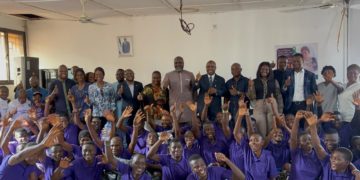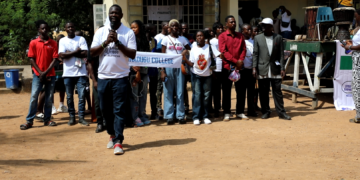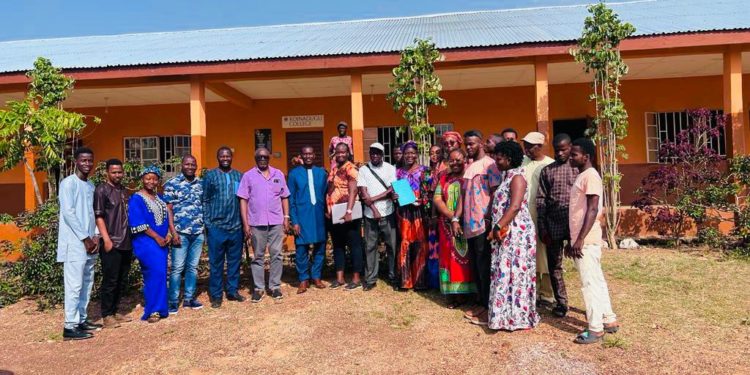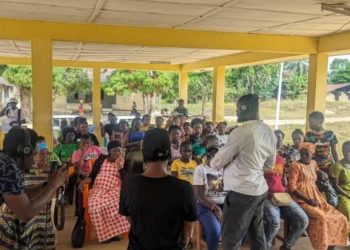The Koinadugu College (KC) is set to commence full academic operation this September, following its accreditation by the National Council for Technical Vocational and other Academic Awards (NCTVA) and the Tertiary Education Commission (TEC).
The college plans to offer various short courses at certificate and national diploma programme level from its Kabala Campuses in Koinadugu District, northern region of Sierra Leone, the management says.
NCTVA and TEC are the regulatory bodies established by the Government of Sierra Leone primarily charged with the responsibilities to approve and accredit universities, technical vocational and other higher learning institutions in Sierra Leone.
Koinadugu College is a private institution, and it was founded in response to community demand for a higher learning institute. The establishment of the college followed several consultative meetings held in 2012 by the Founder and Chief Strategist of Project 1808 Inc, Dr. Alhaji U. N’jai and community members in Kabala. It was on this basis that Dr. N’jai and his partners agreed to work on establishing a model one Health Campus as the first higher institution of learning in the district.
Key management staff and volunteers of the institution in and out of Sierra Leone assiduously worked on the accreditation process for a period of over two years. This required getting the curriculum for every course from scratch, identifying the human resource capacity, infrastructure (classrooms, staffroom, recreational centers, computer lab, canteen, water and sanitation facilities on campus etc), as well as other requirements requested from NCTVA and TEC.
According to Dr. Alhaji U. N’jai, who also serves as the Principal of the College, it will be one of a transformational and decolonized curriculum that will focus on an experiential learning system.
“Our students will be leaders in building sustainable and economically viable communities based on our core values of entrepreneurship, global-mindedness, leadership, indigenous knowledge systems, Pan-African education and sustainability,” he said.
Dr. N’jai noted that establishing KC had been a dream he had worked on with the help from partners like Feeding Mouths Filling Minds (FMFM), and Strides for Africa (SFA), and other individuals. He believes that “an education at Koinadugu College will help to enable students to lead in the region’s economic growth and help to build thriving communities in not only Koinadugu and Falaba Districts, but eventually throughout Sierra Leone.”
“KC will provide cost-effective, appropriate formal and informal training for students, youths, and adults. Building youth and adult capacity to better utilize their resources and appropriately respond to changes in their environment is meaningful for sustainable development,” he added.
In December 2022, a supervisory team from the NCTVA lead by Dr. Sam Kargbo visited the campus in Kabala, whiles another separate visit was done by the TEC in April 2023, led by Professor Alyageen M. Alghali, Chairman for TEC. Those trips were both part of an on-the-spot visit to physically evaluate and assess the status of the campus and its facilities.
Dr. Susan Balmes, a Biology Instructor at Lake Michigan College and a key management staff for the Koinadugu College, described the accreditations as “vital to the work of Koinadugu College, which documents that we are accountable to provide an excellent educational experience for our students, the district and national level.”
Dr Balmes further stated that it had been “an incredible journey”, noting that she was fortunate to work with a team whose passion, enthusiasm, and hard work “saw us through the many challenges of bringing higher education to Koinadugu.”
She expressed optimism that KC will bring opportunities to the district and thus Sierra Leone as a whole.
“First, students in the Koinadugu district will have ready access to college and they no longer will have to travel hours and endure the extra expenses of living away from home,” she said.
Currently, even with the many resources and economic potentials of the district, the challenges of access, affordability, and availability of higher education for learning continues to stifle the manifestation of the social intelligence of the district’s people and in consequence, hinder its potential.






















